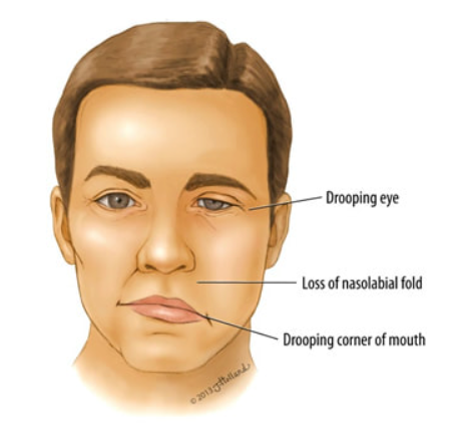This is patient AM, 28-year-old male who came in the the ER because of drooping of his left face. He said he woke up and he could not move his left face.
He has no other muscle weakness. He is conscious and coherent although he had a little difficulty speaking because the left side of his lips drooped. He had normal blood pressure and he had no other co-morbidities. He was diagnosed to have Bell’s palsy. Name 5 muscles which are affected and list its actions. Describe the mechanism of his muscle weakness. What other symptoms could the patient exhibit as a result of facial muscle weakness?

Bell’s palsy temporarily weakens or paralyzes facial muscles. It can occur when the nerve that controls your facial muscles becomes inflamed, swollen, or compressed. To be more specific, it occurs when the seventh cranial nerve becomes swollen or compressed, resulting in facial weakness or paralysis. The muscles on one side of the face becomes weak or paralyzed. Due to patient AM’s facial muscle weakness, he may exhibit other symptoms such as drooling, dry eyes and mouth, loss of taste, headache, ringing in the ears (tinnitus), muscle twitches in the affected muscles, and difficulty in eating and drinking. Five of the affected muscles of patient AM are orbicularis oculi, orbicularis oris, buccinator, occipitofrontalis (frontal belly), and platysma muscles.
———————————————
Reference:
- Kahn, A., & Larson, J. (2021, November 02). What Is Bell's Palsyy. (N. Hammond, Editor) Retrieved from Healthline: https://www.healthline.com/health/bells-palsy